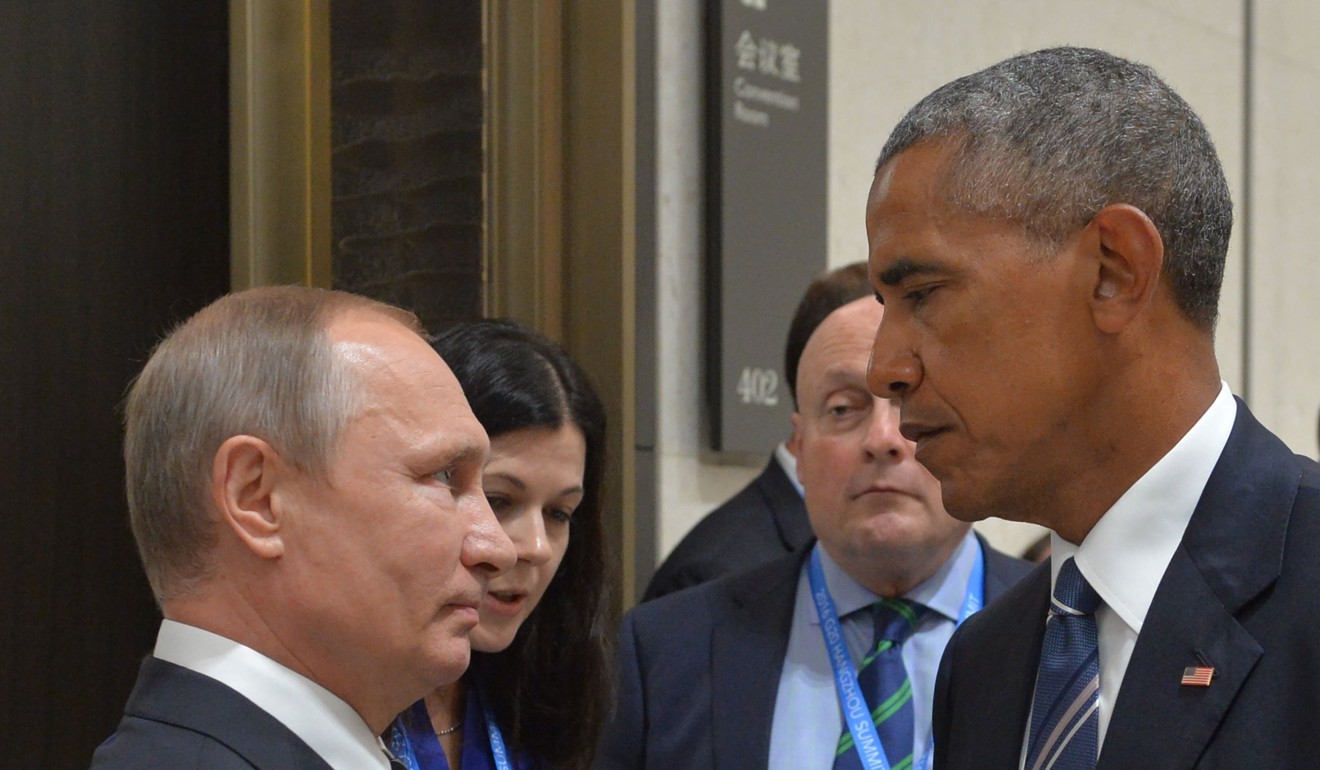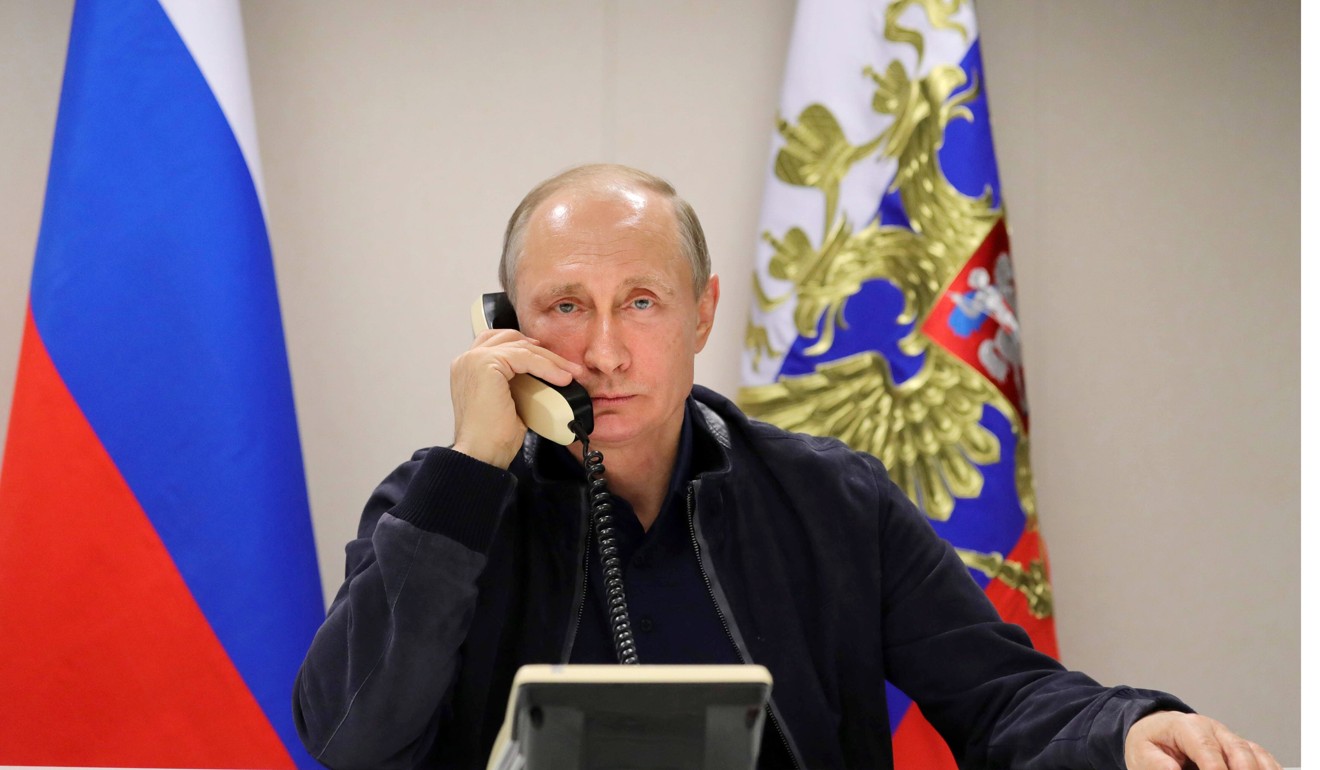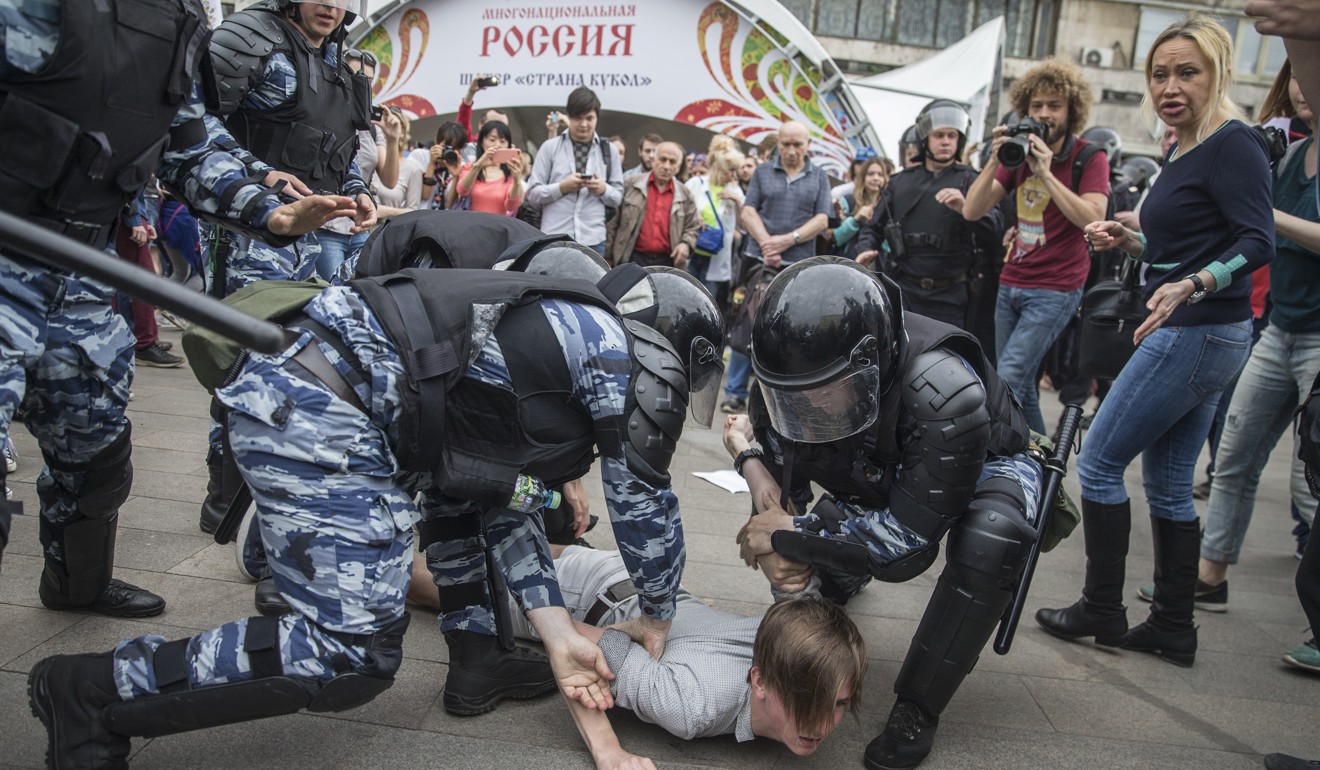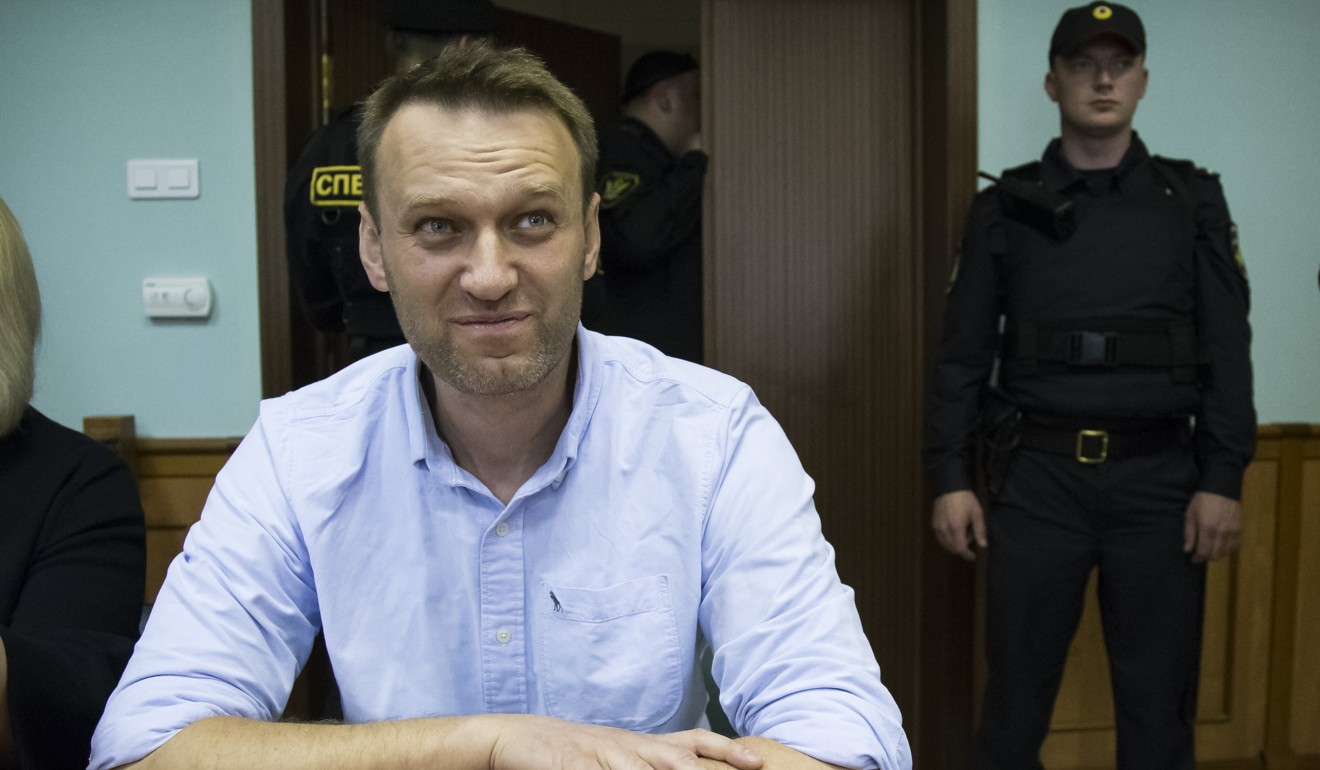
Analysis | War on truth: US interferes in our affairs, says Russia after being accused of hacking and meddling
Russian officials say what is at stake now are Russia’s 2018 presidential and national elections
Now, some Russian officials are pointing the finger at Washington, saying it’s America that is meddling in Moscow’s domestic affairs. In fact, Kremlin officials say, the US has been doing it for years.
Hacking? The Kremlin’s website is attacked daily “from within US territories,” Dmitry Peskov, President Vladimir Putin’s spokesman, said this month.
Information warfare and fake news? Washington-funded media outlets like Radio Free Europe and the Voice of America have long run what the Kremlin sees as an anti-Putin propaganda campaign aimed at supporting the Russian opposition.
A report prepared by a committee of the Russian parliament said American media outlets engaged in biased and “anti-Russia” coverage of Russian parliamentary elections in 2016.
Radio Free Europe, Voice of America and CNN in particular were criticised for their stories, which the report claimed unfairly “questioned the democratic nature of the electoral system in Russia.”

“It is difficult to deny that during last year’s parliamentary election campaign, these radio stations that are being financed from the United States were using journalism as a cover to spread one-sided propaganda and disinformation on the Russian electoral process,” said Leonid Levin, a parliamentary deputy who presented the report to the parliament in May.
Russian officials say what is at stake now are Russia’s 2018 presidential and national elections. They said the government must act swiftly to counter any attempts by the United States and its allies to interfere.
“There is no doubt that in the time that is left before the Russian presidential elections due next March, we will face very active and consistent attempts by the USA. and its Nato allies to influence the course of this election campaign,” said Konstantin Kosachev, head of the Federation Council’s Committee for International Relations.

Russia has long contended that the US and its allies have improperly sought to influence the politics in those former Soviet and East Bloc nations that Moscow regards as within its sphere of influence, including Ukraine, Georgia, Poland and the Baltic countries.
In particular, Kremlin officials have pointed to the activities of US-funded organisations such as the National Democratic Institute, the US Agency for International Development and the International Republican Institute.
The US and other Western nations have spent billions of dollars since the breakup of the Soviet Union, supporting democracy-building programmes to support civil society, strengthen election processes, build political parties and promote independent media.
While the West sees this as fostering democracy, Moscow has watched as these programmes have indirectly given birth to anti-Kremlin movements in Russia’s traditional sphere of influence.

The Kremlin, and in particular, an increasingly authoritative Putin, viewed the pro-Western, “colour revolutions” in the former Soviet republics of Georgia in 2003 and Ukraine in 2004 as US-funded- and-organised street protests. Many of the groups that took to the streets during those revolutions were born out of Western-funded civil society, pro-democracy programmes.
In 2014, when hundreds of thousands of Ukrainian protestors in Kiev’s central streets led to the ouster of a Moscow-friendly government, the Kremlin’s closest neighbour and former ally severed its ties with Russia and turned toward Europe.
Washington and European capitals supported Ukrainian revolt against President Viktor Yanukovych, a strong Russia ally who was accused of bilking billions of dollars in government money.
The Kremlin labelled Ukraine’s 2014 Maidan revolution a Western-backed coup. It retaliated by annexing Crimea and backing an armed separatist movement in eastern Ukraine.

Putin has directly blamed the US for its support of the 2012 anti-government protests, and said in particular the former Secretary of State Hillary Clinton, whose election as president Russia was said to be attempting to thwart in hacking attacks last year that targeted the Democratic National Committee and other entities.
The Kremlin has reacted by cracking down on Western-funded non-governmental organisations in Russia.
The US Agency for International Development was asked to leave in 2012 after spending nearly $3 billion on aid and democracy programmes during two decades. Groups receiving funding from outside Russia must now register as foreign agents.
Roskomnadzor, Russia’s telecom and information technology watchdog agency, announced Friday that it would block the messaging social media app Telegram if the company did not comply with a Russian law requiring IT companies that collect data on Russian citizens to register in the country.
Russia passed a law last year requiring social networks to store six months of user data on Russian servers, allowing the government access to any information contained there. Russia claims the law is a counterterrorism tactic. Human rights groups called the law draconian.
However western technology companies, including Cisco, IBM and SAP , are acceding to demands by Moscow for access to closely guarded product security secrets, a Reuters investigation has found.
Russian authorities are asking Western tech companies to allow them to review source code for security products such as firewalls, antivirus applications and software containing encryption before permitting the products to be imported and sold in the country.
The requests, which have increased since 2014, are ostensibly done to ensure foreign spy agencies have not hidden any “backdoors” that would allow them to burrow into Russian systems.
Additional reporting by Reuters

